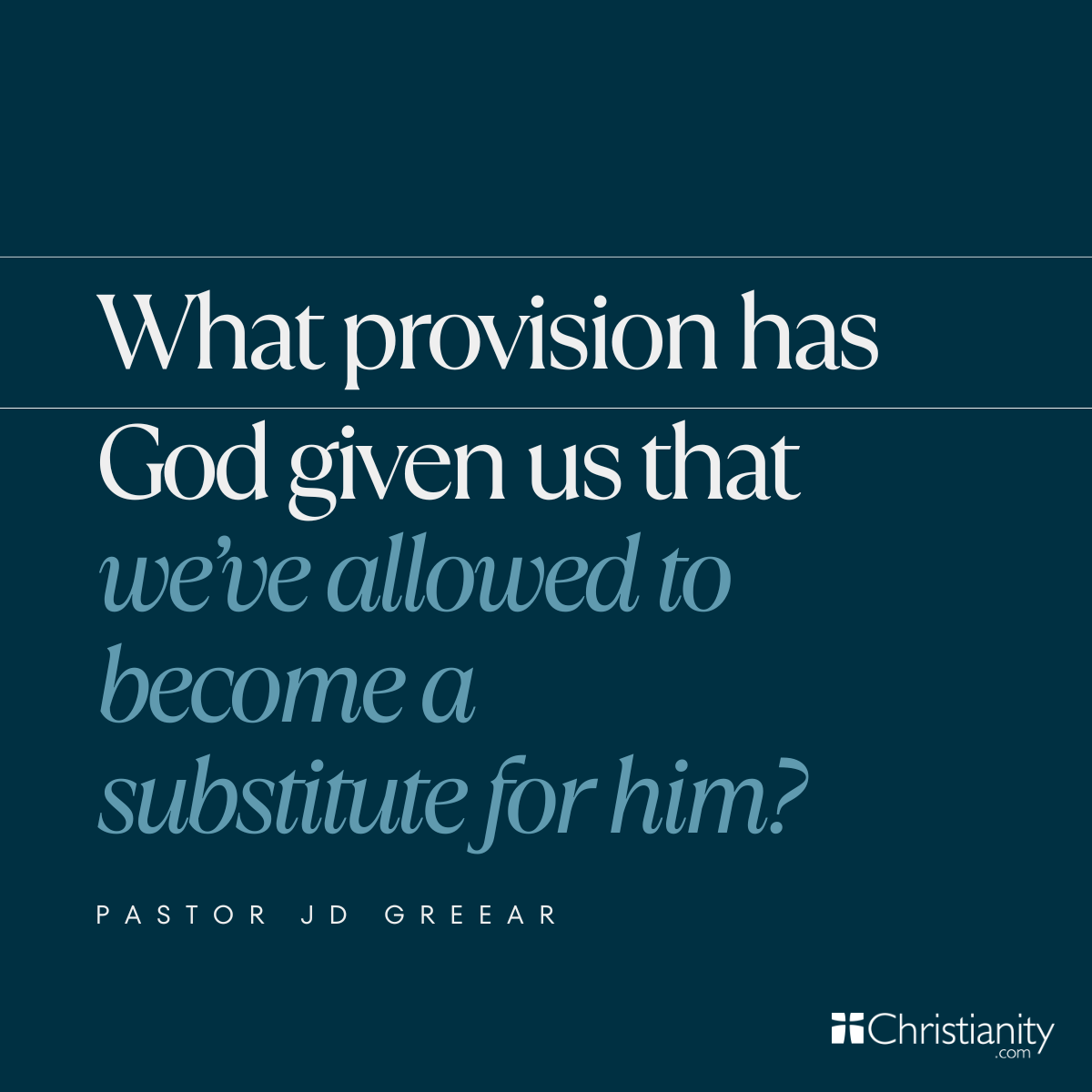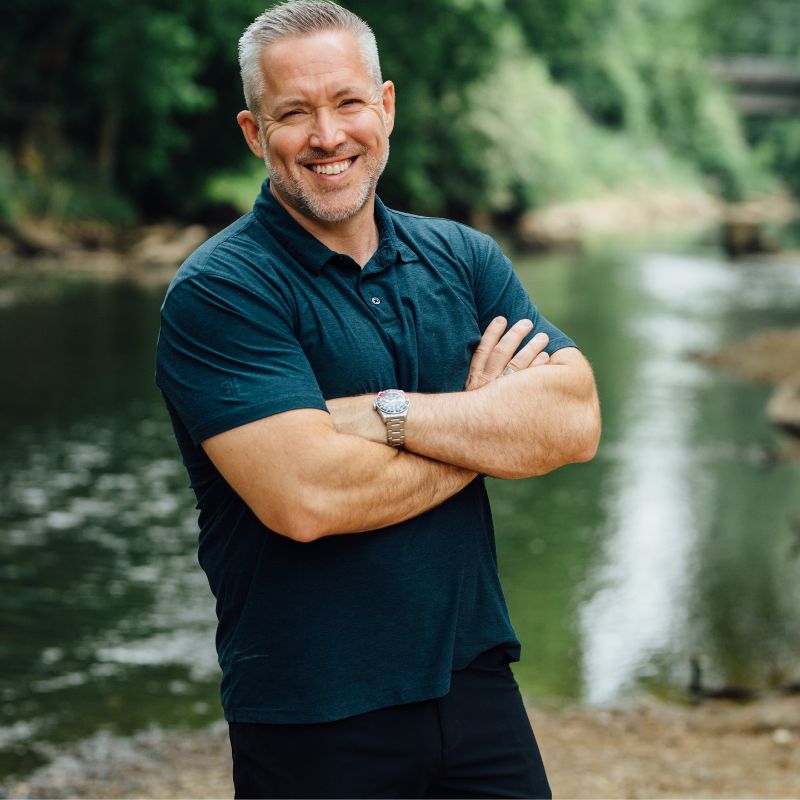When the hills around you crumble—your money, relationships, routines—will your faith stand because it’s rooted in the God behind them?

Psalm 121 asks a question relevant to each of us who finds ourselves in a time of doubt and confusion: What is your faith actually in? It’s one thing to say you have faith—that’s easy. It’s another thing to actually show it when it really matters.
In the summer of 1859, Charles Blondin, a world-renowned tightrope walker, dazzled crowds by walking over Niagara Falls on a tightrope 1,100 feet long and 160 feet above the roaring waters. Thousands of spectators gathered to witness as he performed this incredible feat multiple times, each time adding another dramatic stunt—like walking blindfolded, on stilts, or cooking an omelet. Each time he completed the journey, the crowd erupted in cheers.
At the end of one of his stunts, Blondin took a wheelbarrow and asked the crowd if they believed he could push the wheelbarrow across the rope. Everyone clapped, “Yes, you can do it!” Blondin then said, “OK, who volunteers to get into the wheelbarrow?” at which point the crowd fell silent. It’s one thing to say you have faith—that’s easy. It’s another thing to get into the wheelbarrow.
Like Blondin and the wheelbarrow, Psalm 121 shows us how our trials and unanswered questions reveal what our faith is actually in.
There’s some debate as to whether the author of Psalm 121 wrote a statement, “I will lift up my eyes to the hills …” meaning the hills are strong, just like God’s protection, or asked a question, “Will I lift up my eyes to the hills …?” saying these hills are strong, but that’s not where my trust is; my trust is in God alone.
The ambiguity, I believe, is intentional. (After all, Psalm 121 is a poem, and ambiguity abounds in poetry.) Yes, the hills are a natural fortification that God has provided for our protection, and we can look at these hills as symbolic of God’s protection. But we should never forget that our protection is not ultimately found in these hills; it’s in God. And if these hills ever go away—or if some army ever figures out a way to scale them—them-the God they represent will always be there, and he’s a better and more reliable refuge than even the strongest mountains.
This highlights a really important problem in the Christian life, one that a lot of us struggle with: allowing the provisions of God to become a substitute for God. Most of us have never thought this way about literal mountains, because we don’t live with the daily fear of some army invading us on foot. The question for us is, What provision has God given us that we’ve allowed to become a substitute for him?

Like many of you, I have a savings account and a 401(k). Those are great—the book of Proverbs even commends that kind of saving, but are those accounts mere representations of God’s provision to you, or have they become a substitute for him? They can be either, just like the hills in Psalm 121.
Another example: I voraciously read books on parenting to learn the best techniques for raising kids. This is good; Scripture commands parents to grow in wisdom in this way. I want to know everything the Bible says about parenting so I can build my home on God’s wisdom.
But I know Christian parents—and have been one myself—who have used these techniques as some kind of foolproof way of guaranteeing their kids turned out right. Just read Raising Kids God’s Way, then James Dobson’s book on discipline, and Jon Tyson’s Intentional Father, pull this lever, and it’s guaranteed you’ll have amazing kids! If you learn these techniques, you don’t even have to rely on the grace of God anymore.
And yet, to those of us in the throes of parenting, the psalmist says, “Will you lift up your eyes to the hills? Where does your hope in parenting come from? From the hills of godly wisdom you have amassed from these books? No, your help comes from the Lord.”
Maybe you’re at a stage of life where neither 401(K)s or parenting are relevant to you—but I guarantee you, whatever state of life you are in, there are provisions and protections God has given that you now have let become a substitute for him. The overarching question of Psalm 121 is this: How does trusting God relate to all the “natural” things we do to take care of ourselves?
Do you trust in the hills or in God? Are you trusting in the God who uses these things to provide for and protect you, or have you started to trust in those things instead of God? When you look into the future and feel some worry ... what’s the first thing your heart grabs hold of to tell yourself you are going to be OK? Is it …
... the amount of money you have in your bank account? “I have enough that whatever circumstance happens, I’m going to be OK.”
… the stability of your marriage and family? “I’ll always have my family. I may not know what the future holds, but my family is strong, and as long as I have them, I’ll be OK.”
… the ability to make things work. “If the future knocks me down again, I’ll do what I’ve always done and figure out how to make it work.”
What is your hope actually in? Is it in the hills, or the God the hills represent? Because I promise you, at some point, these hills are going to fail you. Eventually, some Babylon, some Rome, is going to amass an army big enough to scale that hill. And then what will you have? The point is never to let the hill become a substitute for God, because he is where your real refuge lies.
I found myself in a little morbid thought spiral recently that really taught me this lesson, asking, What would happen if I died and my kids had to grow up without a dad—I got trampled by a herd of wild billy goats or something—and my kids are left without a dad? Can I trust God that if this hill—me, as their dad, their protector, their guide—got removed, that he would take care of them?
I concluded that yes, I could trust that God would do that. But then that led me to ask another question: While I’m alive, am I trusting in him to be their real provider and protector, who is just working through me, or have I become in my own mind the substitute for God? For all the things I want to see in their lives—protection, guidance, spiritual transformation—where does their hope for that come from? Is it in God, who uses me and works through me sometimes, or is there hope for those things in my parenting skills?
This may seem like an insignificant distinction, but it’s not. Because, if their hope for these things ultimately sits on me, that’s a crushing burden to bear! And I’m always second-guessing, living with fear and regret, very aware of how insufficient this “hill” is to provide real protection and salvation. But their hope isn’t here; it’s in the God who sometimes uses me but is their real protector and provider.
During one particularly challenging season of parenting, I read Psalm 136. In this psalm, the author recounts the history of Israel, listing out a bunch of the ups and downs, the good and the bad. Between every major moment, he puts the phrase, “The steadfast love of the LORD endures forever.” Twenty-six times in the psalm, he uses that phrase, and as you read it, you get this overwhelming sense that God himself was the one writing Israel’s story. Israel failed a lot, but God’s steadfast love endures forever and always kept writing their story.
So I wrote my own version of Psalm 136. I started with all the major events of my life—all the turning points, all the good and the bad. Between every major event, I wrote the words, “The steadfast love of the LORD endures forever.” When I was done, I went back and read it aloud to myself, and as I did, the Holy Spirit hit me with a realization.
I had awesome parents—a mom and dad who did about as good of a job, I think, as humanly possible for parents. They were consistent, faithful, intentional, and godly examples. But as I read back over all these significant moments in my life, I realized that for all the major, spiritually significant moments in my life, my parents had not engineered a single one of them. Not one. Yes, of course, God used them in my life. But looking through this personal history, it was clear that God had been the one writing my story. He was in control of it all, working through it all. It was his steadfast love that had been the through-line of my life.
And this is what the Holy Spirit hit me with: If God was the one who wrote my story, wasn’t it going to be the same for my kids, too? If it was his steadfast, pursuing love, and not my parents’ perfection, that had made the difference in my life, wasn’t that my kids’ hope, too? Sure, I know God uses me—I’m like one of the hills around Jerusalem—but my hope as a parent is not in these hills; it’s in a God full of steadfast love who is greater than these hills. God is the one writing each of my kids’ stories, and his steadfast love endures forever. It’s more steadfast than me; it covers me when I fail. My hope for parenting is not in the hill; it’s in the God behind the hill.
Photo Credit: SWN Design

Pastor J.D. completed his Ph.D. in Theology at Southeastern Baptist Theological Seminary. He serves as a member of the Board of Directors of Chick-fil-A, serves as a Council member for The Gospel Coalition, and recently served as the 62nd president of the Southern Baptist Convention. Pastor J.D. and his wife Veronica are raising four awesome kids.
"Editor's Note: Pastor JD Greear's "Ask the Pastor" column regularly appears at Christianity.com, providing biblical, relatable, and reliable answers to your everyday questions about faith and life. Email him your questions at [email protected]."



.jpg)
